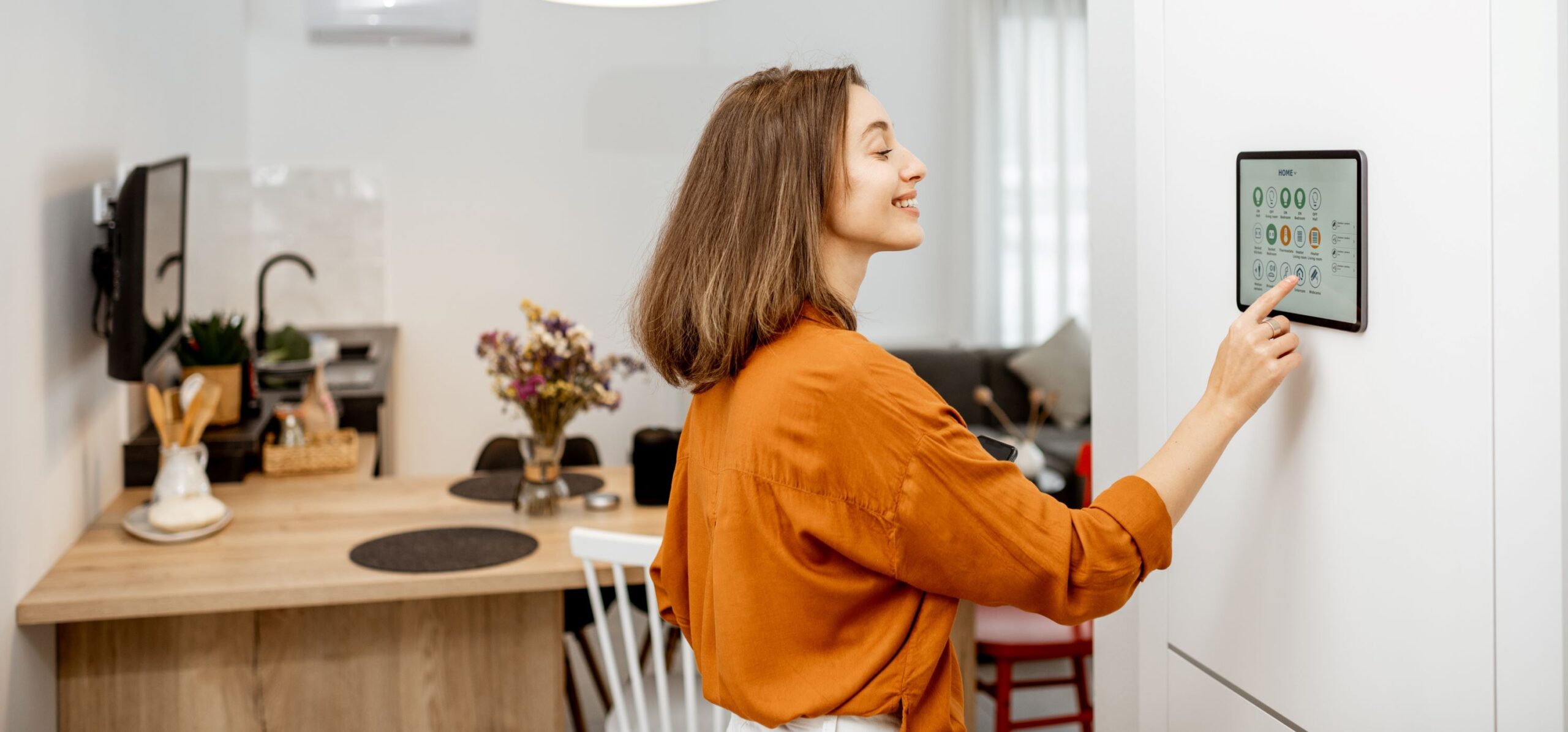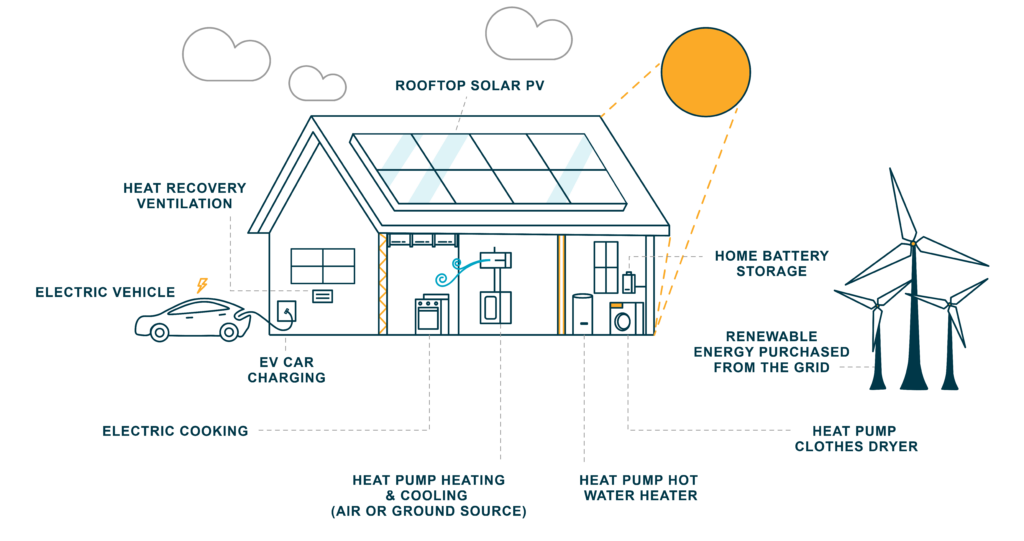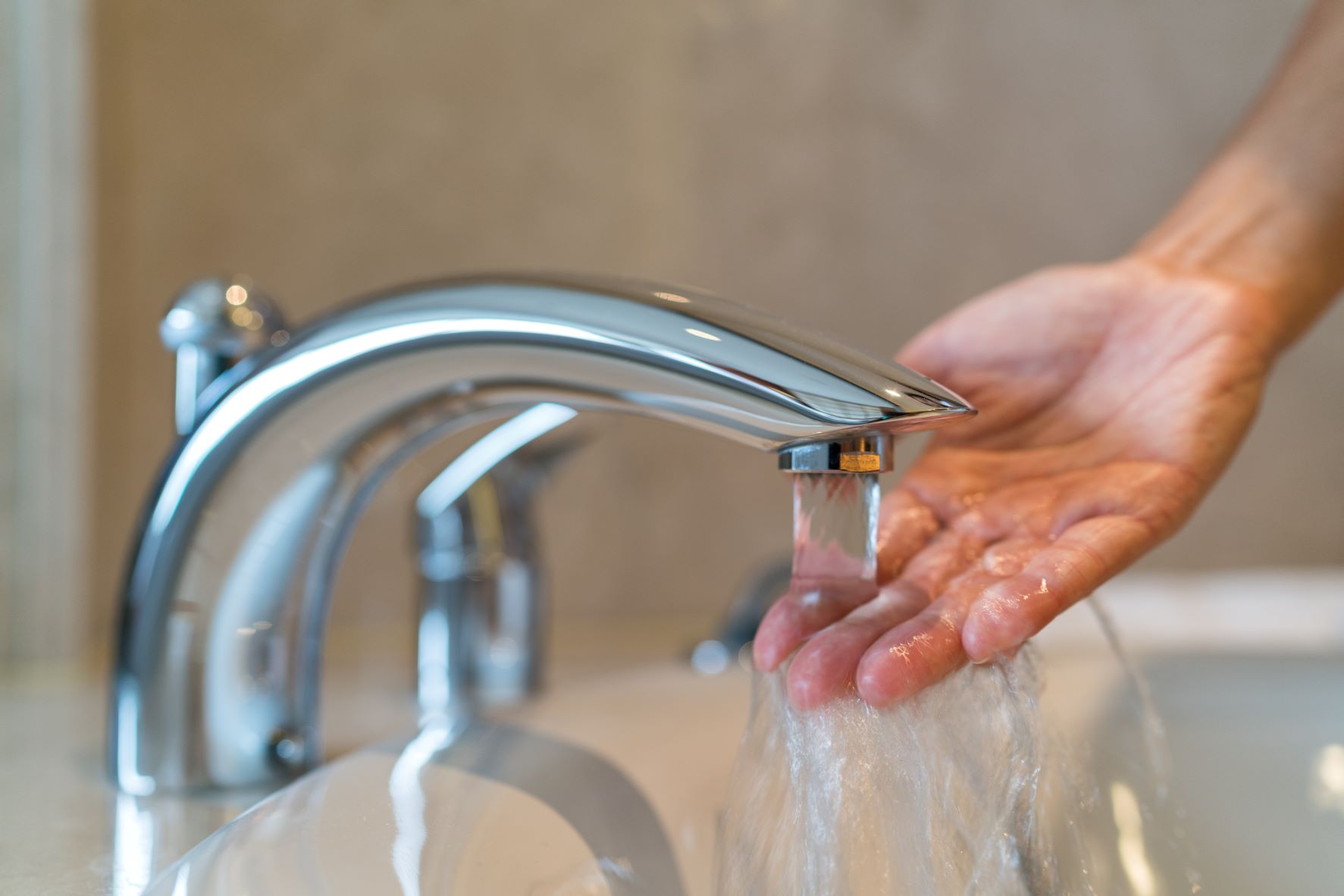
Did you know the appliances, design, and fuel choices of your home can affect its overall health and comfort? Choosing all-electric appliances has many benefits including healthier indoor air quality, increased resistance to future wildfires and smoke damage, fewer maintenance concerns, reduced energy costs, and fewer greenhouse gas emissions.
Click any of the icons below to learn more about electric alternatives to traditional appliances.
Utilities serving most of Boulder County–including Xcel Energy, Platte River Power Authority, and Tri-State–all have commitments to reduce their emissions by 80% by 2030. Additionally, the City of Boulder, City of Longmont, and Town of Nederland all have goals of providing 100% renewable power by 2030.
Continuously cleaning up the electricity grid means that transitioning fossil fuel equipment–like heaters, water heaters, and cooking appliances–to electric equipment will continue to have fewer and fewer emissions over time.

Electrification FAQ
Electrification means converting equipment from using fossil fuels to electricity, resulting in reduced pollution and energy costs.
Electrifying your home can result in:
- Reduced emissions of carbon dioxide and other pollutants
- Reduced fuel costs
- Improved health and safety by removing combustion gas appliances in the home
- Improved performance of the electric system or equipment.
Price differences between gas and electricity depend on your utility and the rates set at a given time. In general, gas and electricity rates in Colorado are currently very similar.
Even if your gas rates are lower than electric rates, heat pumps can be more than 3 times as energy efficient as natural gas furnaces. This means that your heat pump bill will be comparable or even lower than your equivalent natural gas bill.
It may depend on the current status of your panel, typically most homes will need 200 amps of electric current to electrify everything. If you have 100-150 amps you may be able to get by for some upgrades and there may be other workarounds available. Check out this article to learn more.
Yes, it’s possible but it will require careful planning and efficient appliances, check out this article to learn more.
Not sure where to start?
Get a FREE custom guide for upgrading your home. By answering just a few questions, you can get personalized recommendations, cost estimates, rebate information, and more.




